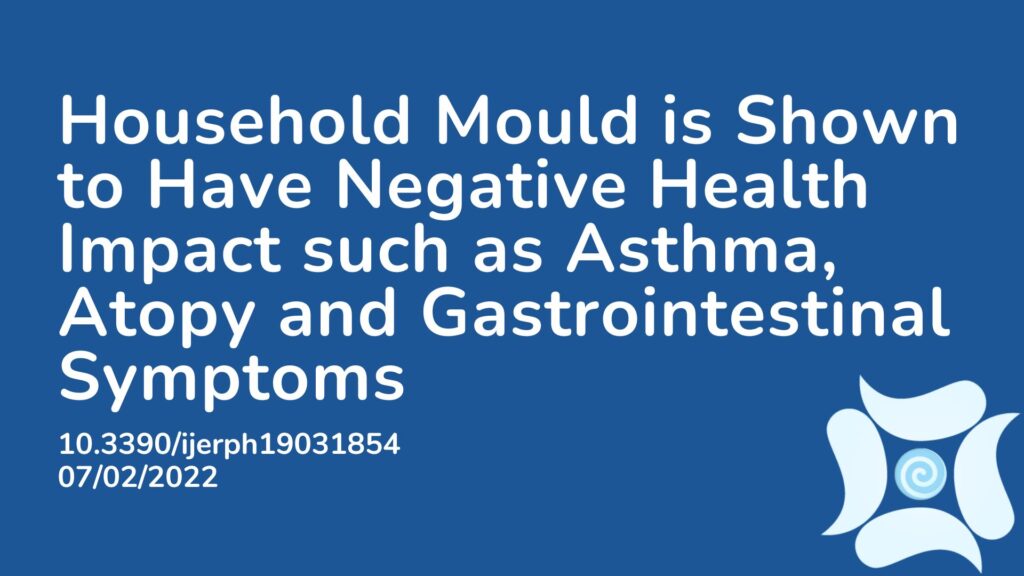Summary: This paper reviews the current evidence on the impact of mould in Australian housing, in order to help identify gaps in housing and health research as well as clinical practice and policy. Forty-five research papers were included in this review, many of which reported allergy, atopy, gastrointestinal symptoms, mood changes, depression and pain where mould or potential housing fungal indicators were present. Headaches, breathing complaints and chronic fatigue were also reported. This is an important piece of research, as it is clear that these impacts need to be considered when regulatory decisions on housing are made and to inform Australian households how they can minimise mould, especially since Australia has seen an increase in extreme weather events. Australia is also shifting towards spending more of the working day from home, meaning exposure to mould might be higher than ever before.
Abstract:
In response to an Australian governmental inquiry into biotoxin-related illness, the purpose of this integrative review is to bring together the current state of evidence on the prevalence, risk factors and impacts related to mould-affected housing in an Australian context, in order to inform building, housing and health research, practice and policy. The robust integrative review methodology simultaneously sought quantitative and qualitative studies and grey literature from multiple disciplines, identifying only 45 studies directly relating to Australian housing and indoor mould. Twenty-one studies highlight negative health impacts relating to indoor residential mould, with asthma, respiratory, allergy conditions and emerging health concerns for chronic multiple-symptom presentation. The majority of studies reported risk factors for indoor mould including poor housing conditions, poor-quality rental accommodation, socioeconomic circumstance, age-related housing issues and concerns for surface/interstitial condensation and building defects in newer housing. Risks for indoor mould in both older and newer housing raise concerns for the extent of the problem of indoor mould in Australia. Understanding the national prevalence of housing risks and “root cause” associated with indoor mould is not conclusive from the limited existing evidence. Synthesis of this evidence reveals a lack of coverage on: (1) national and geographical representation, (2) climatical coverage, (3) housing typologies, (4) housing defects, (5) maintenance, (6) impact from urbanisation, and (7) occupant’s behaviour. This integrative review was key in identifying emerging housing and health concerns, highlighting gaps in data and implications to be addressed by researchers, practice and policy and acts as a comprehensive holistic review process that can be applied to other countries.
Article Publication Date: 07/02/2022
DOI: 10.3390/ijerph19031854




